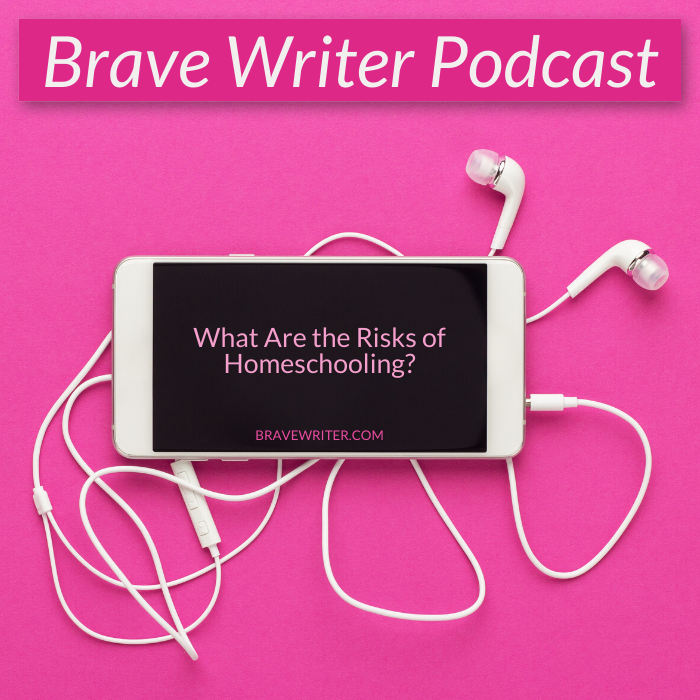Podcast: The Risks of Homeschooling

Millions of families have been forced to educate at home due to the pandemic of COVID-19. Millions of families also educate their kids this way by choice. Whether you are the former or the latter, all are welcome here.
In the midst of this pandemic, Harvard Magazine published an article titled “The Risks of Homeschooling,” and I certainly have some thoughts about this. These are my own personal views, and I may push some buttons or challenge some ideas that you have, but I mean to do that.
When we are confronted with someone who wants a presumptive ban on homeschooling, I want us to dig a little deeper and discover what this article is attempting to do.
Listen to the Podcast (S6E9)
Show Notes
Why this hurts
In a time where many parents have been forced to adapt instantaneously with the demands of a traditional school system and the challenges of balancing work, school, and childcare, Harvard Magazine decided it was a great time to drop an article into our world called “The Risks of Homeschooling.” The timing could not be worse.
Most conflicts that engender this level of passion have to do with lifestyle choices: Birthing at home or in a hospital, breastfeeding versus bottle feeding, keto or vegan. These choices cause the most conflict in our culture because they are personal — they go to the heart of our identity and match up with the stories of who we choose to be.
Education is itself a deeply personal lifestyle choice. Private or public education are the default, status-quo choices in our culture, but there is a large body of parents challenging that status-quo. Our community identity is around the notion that a child can receive a custom, tailor-made education that will be for the better. They will be more nurtured. They will be less likely to be bullied. They will experience an educational freedom that will lead them to discovering their passions that will lead to meaningful careers in adulthood. That’s the dream.
It hurts to hear a personal choice, one that we truly believe in, attacked in this way. But if we look at where the author of the article’s commitments lie, we will see what shapes her opinion on this topic.
The other point of view
What does the author (or authors) hold dear? Do they value public education? Government? Child safety?
Looking at the article from this perspective, trying to look past the incendiary language and focusing on the content of the words, you can more clearly see what the attempted message is, even if you still do not agree with it. Let’s look at the loyalties of Elizabeth Bartholet, the professor interviewed for this article. She is the faculty director of Harvard Law School’s child advocacy program. Her primary commitment is to children’s welfare.
From her perspective, children who are abused at home at least have a refuge in school, where teachers may be able to pick up on signs. But being left at home with a violent, dangerous parent — how are we ever going to find out and save that child? This is where she is coming from.
How should we react to this?
I have a couple of thoughts on how to react to this — not the hyperbole, not the vitriol, but the actual, underlying message. What should be done about families that use homeschooling as a cover for abusive practices?
- We have to stop being so defensive. It matters that we own both homeschooling’s beautiful sides and its dark underside. We can’t whitewash the damage in these abusive, dangerous families. Homeschooling may not be the cause, but it allows the perpetuation of it.
- We need to stand against these abusive parenting practices as a movement. We need to stop encouraging harmful practices like spanking as a standard for our community. We need to prioritize learning and education over dangerous tactics.
- We must take a clear stand against child abuse: Calling it out when we see it, reporting parents who harm their children, and teaching families how to be healthy. We also need to have open conversations about what is difficult in homeschooling.
- We need to be self-monitoring. It would be amazing if we could come up with solutions to child abuse in a homeshooling context.
There are plenty of flawed arguments in this article, but the best way to handle a perceived threat is to take it seriously and look at what does check out and address that. If the homeschooling community had a response to the concerns of child abuse, the rest of the argument would fall apart. And honestly, it’s a valid point that we should be addressing.
We may not agree on some things, but we can join together in opposition to child abuse in our own backyard. If we help the movement become filled with healthier families, we have every right to stay home with our kids and advocate for the magical, absolutely adequate education we are giving our children. Let’s lead rather than react.
Resources
- Want help getting started with Brave Writer? Head over to bravewriter.com/getting-started
- Sign up for the Brave Writer Newsletter to learn about all of the special offers we’re doing in 2020 + you’ll get a free 7-Day Writing Blitz guide just for signing up: http://go.bravewriter.com/writing-blitz
Connect
- Instagram: instagram.com/juliebravewriter
- Twitter: twitter.com/bravewriter
- Facebook: facebook.com/bravewriter


















